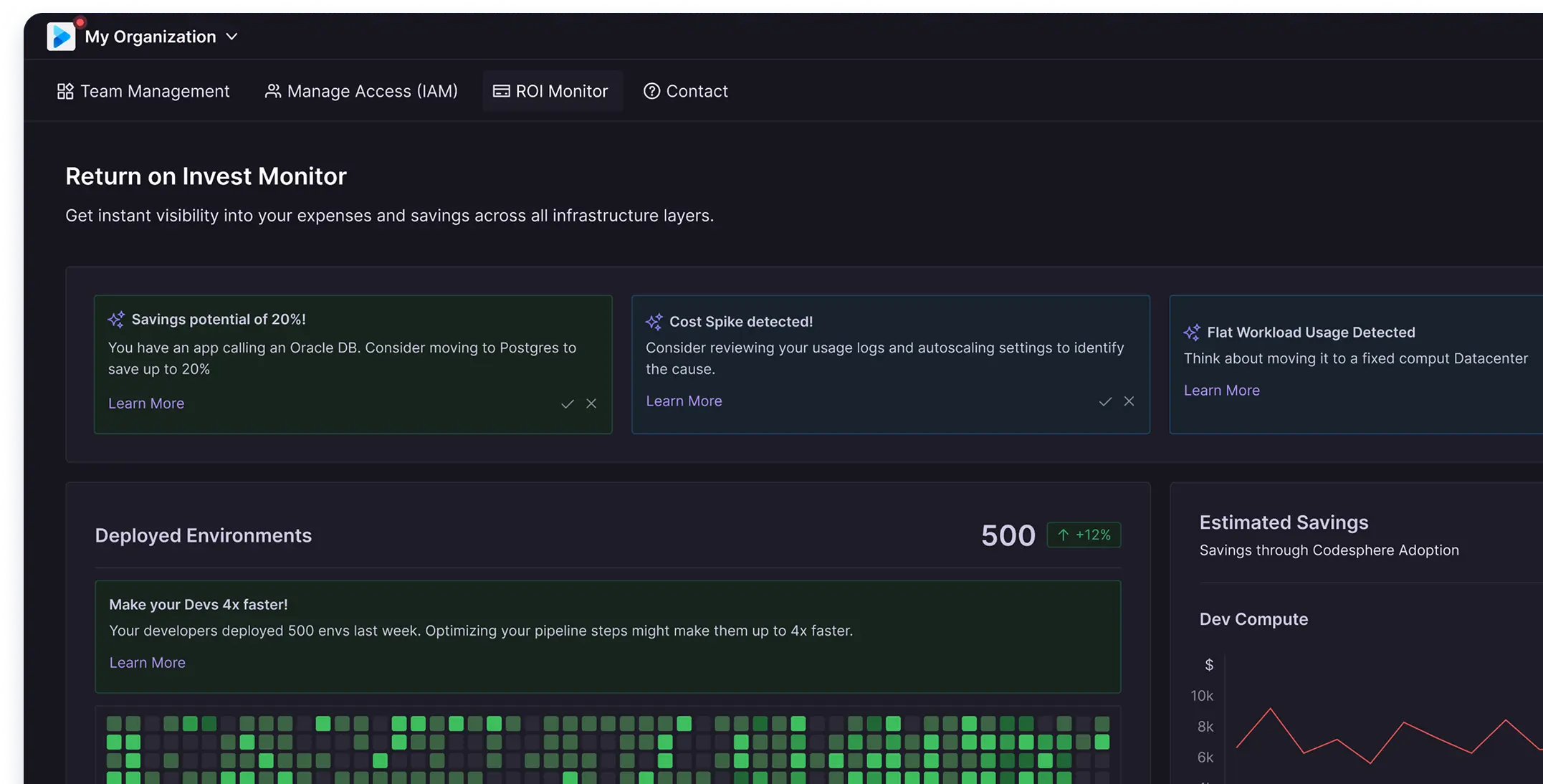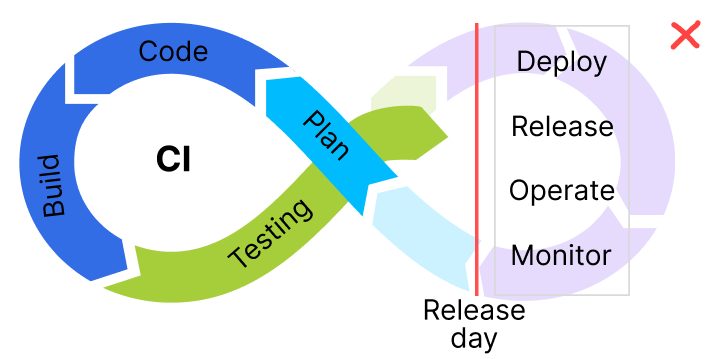The cost of unmanaged complexity
Team Silos
Different teams develop their own ways of working, creating knowledge silos and making cross-team collaboration difficult. This leads to duplicated effort and inconsistent quality.
Infrastructure Chaos
Every team uses different tools and infrastructure setups, making it nearly impossible to maintain security standards and efficient operations at scale.
Hidden Costs
Lack of standardization leads to longer onboarding times, reduced productivity, and higher maintenance costs across the organization.
The hero contributor problem
Reducing key person dependencies
Many organizations rely heavily on a few expert developers who understand complex internal systems. This creates significant business risks and bottlenecks in development.
Business continuity risks
When key people leave, critical knowledge and capabilities go with them
Development bottlenecks
Teams wait for hero contributors to review, deploy, or fix critical issues
Limited scalability
Growth is constrained by the availability of highly specialized expertise

Length of time at current job, reported by DevOps engineers in Google 2023 DevOps Survey

Statista and Stackoverflow surveys, 2023
DevOps transformation
From bottleneck to enabler
Transform your DevOps teams from operational bottlenecks into strategic enablers. By providing self-service infrastructure and standardized workflows, DevOps engineers can focus on coaching developers and improving organizational capabilities.
Continuous delivery becomes reality
- • Reduced risk through smaller, more frequent releases
- • Earlier feedback through automated preview environments
- • Standardized processes that scale with your organization
Product-driven development
- • Self-service infrastructure empowers product teams
- • Automated monitoring and observability built-in
- • Focus shifts from operations to innovation

